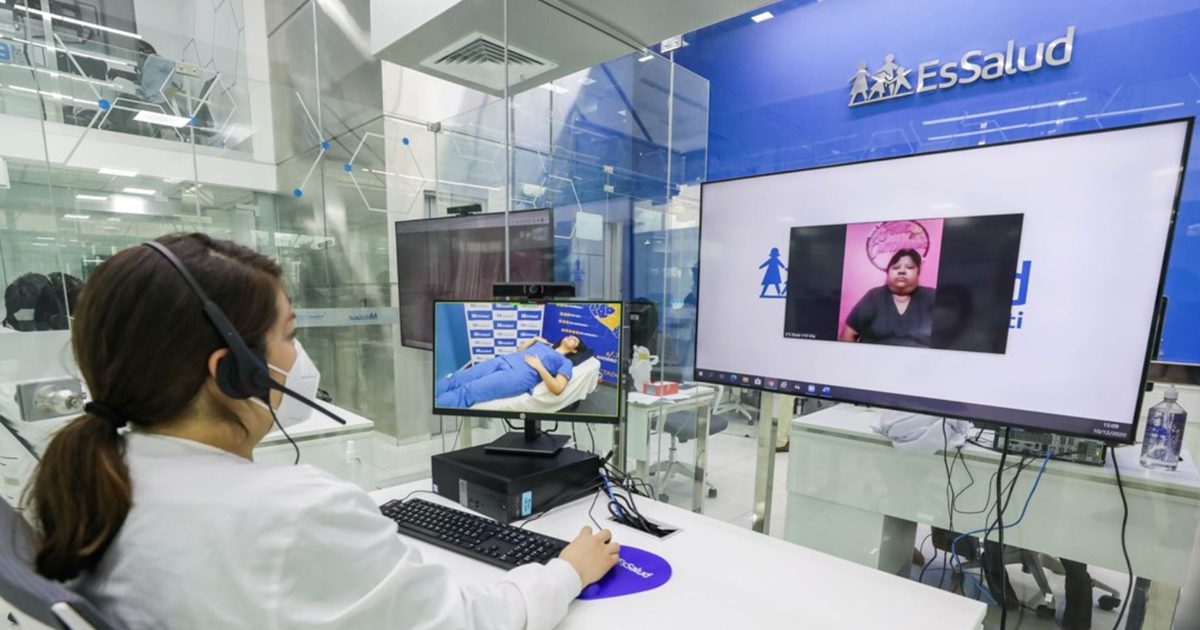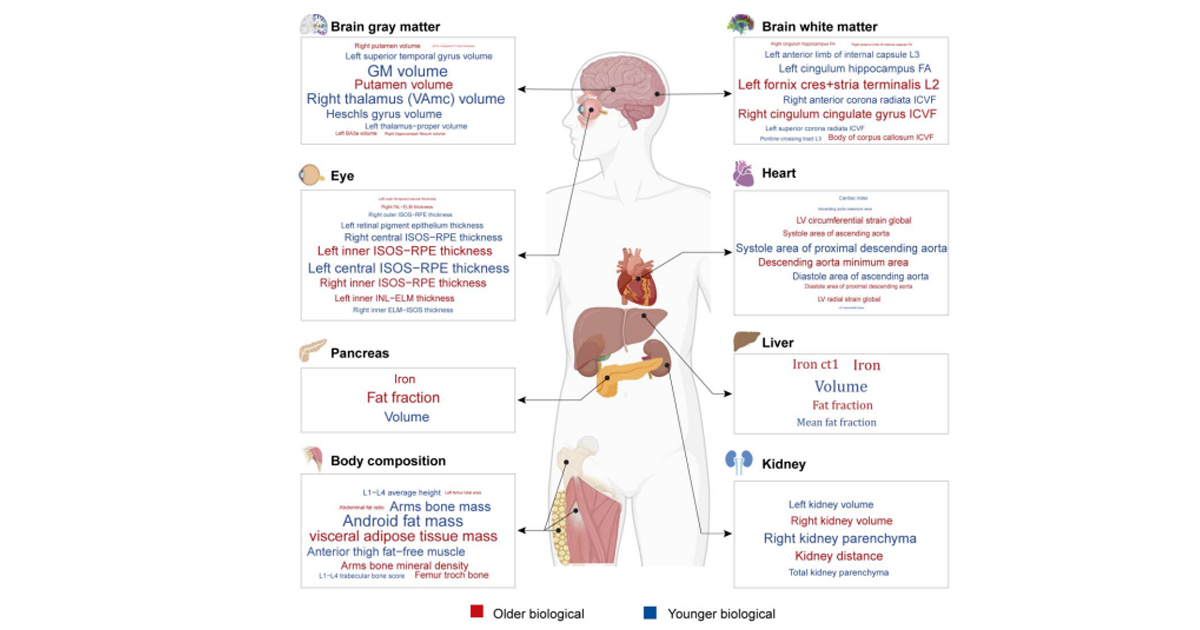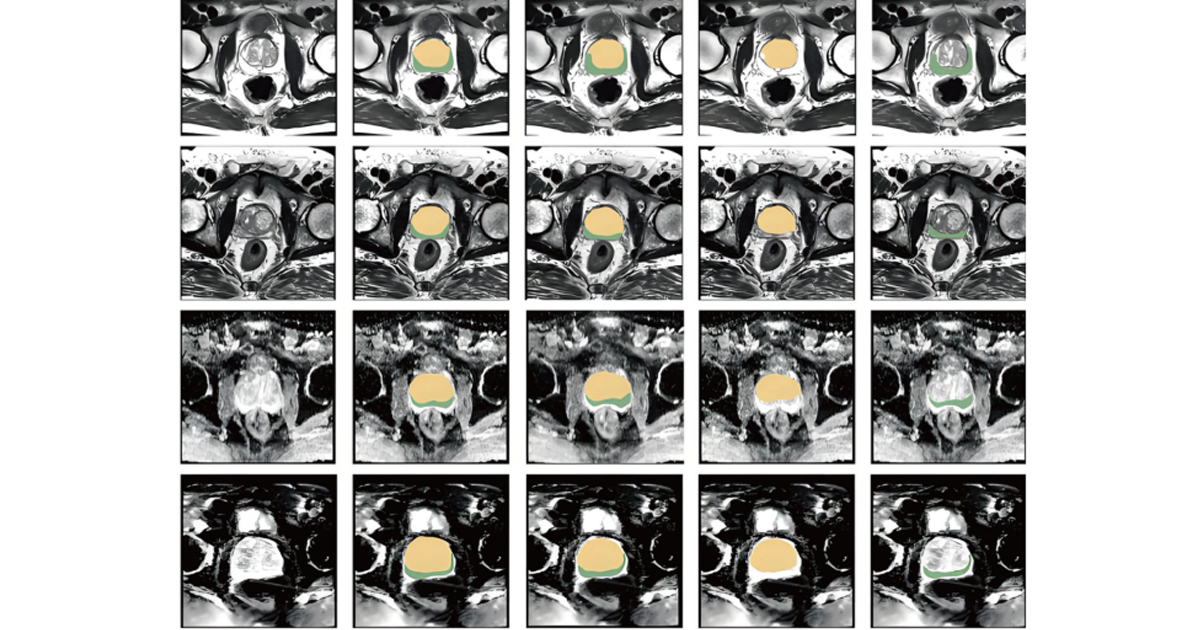El Gobierno de la Ciudad de Buenos Aires, (CABA) ha implementado un sistema de Artificial Intelligence llamado IATos, con el propósito de mejorar el sistema actual de pruebas de COVID-19.
IATos es un sistema de AI, que funciona a partir de una red neuronal y es capaz de clasificar sonidos de voz, respiración y tos. Utilizando machine learning puede determinar a través del sonido de la tos, si una persona debería someterse a una prueba de COVID-19.
De esta forma el Gobierno de la CABA ha incorporado IATos, en el proceso de triage para conocer si una persona tiene síntomas de COVID-19 o tuvo contacto estrecho con un caso positivo. El proceso es el siguiente, el usuario graba y envía un audio tosiendo a Boti (11-5050-0147). IATos analiza el sonido y determina si el audio coincide con patrones de casos positivos y de ser así recomienda al usuario realizarse un test de COVID-19.
Para el entrenamiento del algorithm of AI and machine learning se recolectó una base de datos de 140 mil audios de tos de personas negativas y positivas a COVID-19. De esta forma se detectó un patrón en el sonido de las toses de las personas con resultados positivos en sus pruebas COVID-19.
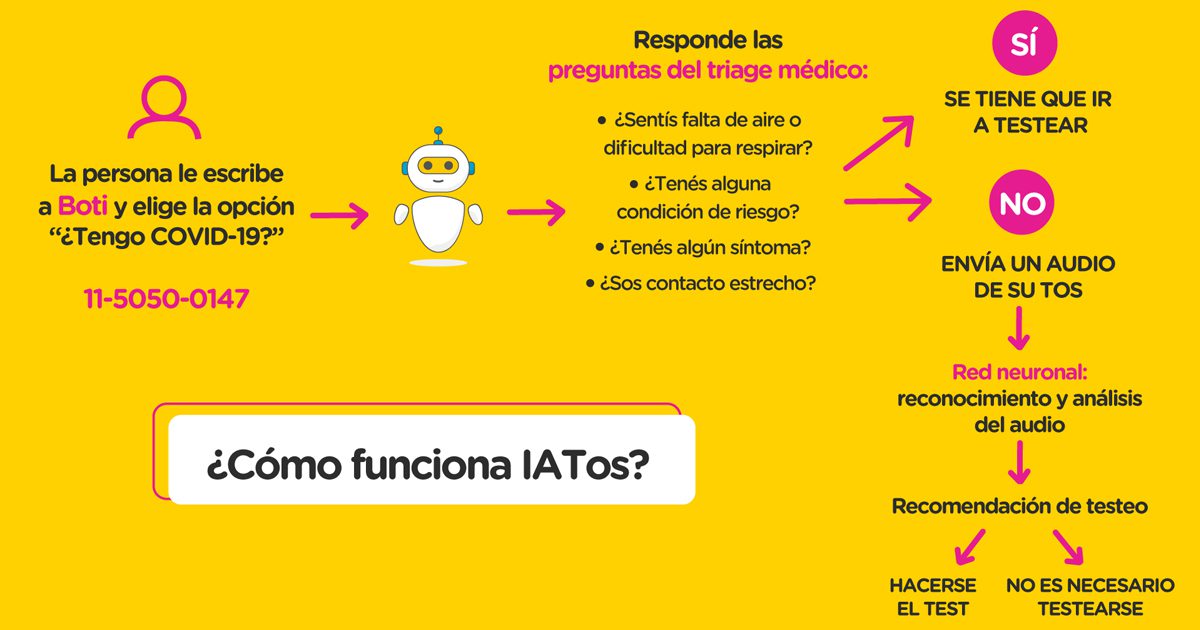
Posteriormente la tecnología fue evaluada en una prueba de audios de tos de 2 mil 687 personas. IATos recomendó a 554 personas a someterse a una prueba de coronavirus, de las cuales 436 resultaron positivas y 118 negativas.
Asimismo, la base de datos de IATos fue recolectada en su totalidad por el gobierno de la ciudad y además es de dominio abierto, por lo que todos los datos relacionados con el proyecto pueden ser consultados para implementar sistemas similares en otras regiones.
“Innovar es aprovechar la tecnología para mejorar la vida de los vecinos y vecinas de la Ciudad. Eso estamos haciendo a través de este proyecto de inteligencia artificial y en cada oportunidad que tenemos para generar herramientas basadas en las últimas tecnologías”, explicó Diego Fernández, secretario de Innovation y Transformación Digital de la CABA.
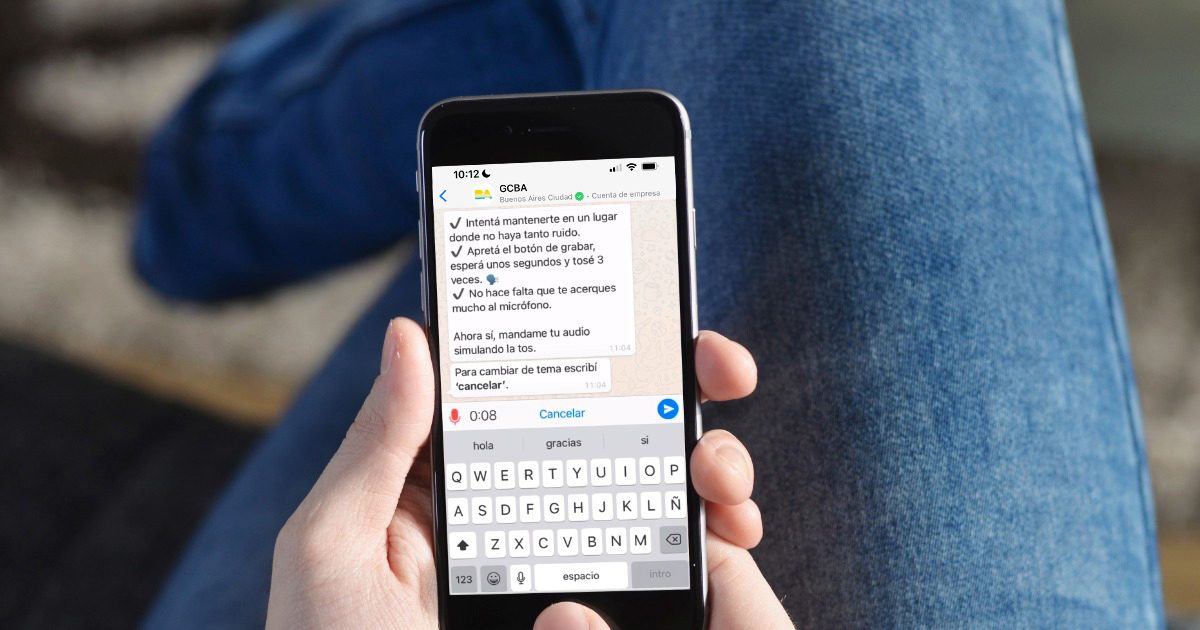
El Gobierno de la CABA, explica que IATos es una herramienta escalable, versátil y además de bajo costo, para mejorar la estrategia de pruebas COVID-19 en la ciudad. Además es un servicio complementario para el sistema de triage de Boti, que de acuerdo con preguntas sobre síntomas de COVID-19 el chatbot evalúa de forma rápida si el usuario tiene riesgo de estar contagiado.


